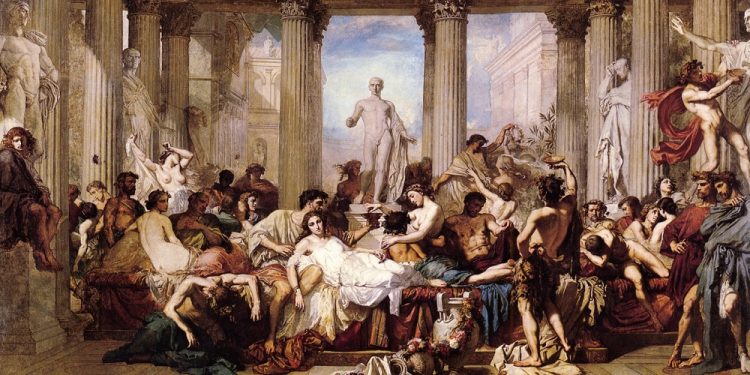
Saturnalia December
December is a busy month for most people. There are dozens of celebrations held this month, with the two biggest ones being Christmas Day and New Year’s Eve. So, when we say that December is also the month for a pagan holiday celebration known as Saturnalia, some people might not be all that enthused.
This holiday begins on the 17th of the month and ends on the 23rd and is a time for gifting, feasting, drinking, dancing, gambling, and having a whole lot of rowdy fun. It’s a holiday week that originally celebrated the Roman god Saturn but is now just another excuse for people to party.
The History of Saturnalia
Saturnalia was one of the most popular holidays celebrated by the ancient Romans and descended from a combination of winter solstice celebrations and rituals passed down by farmers.
One of the main rituals enshrined by this holiday was giving gifts to the gods during the winter sowing season in the hope that the deity would provide divine help in delivering a successful growing season come spring.
Since Saturn was the Roman god of agriculture, it was natural to call this festival Saturnalia in his honor. It started out as a single-day festival, but the Romans liked it so much that they extended it to December 25th. When Christianity came along, the Saturnalia festival was incorporated into Christmas celebrations.
For a long time, Saturnalia celebrations were completely overtaken by Christmas, but at the beginning of the 21st century, it was separated from this holiday and became known as Saturnalia December. Now it’s just another part of the holiday season that serves as another excuse to throw an office party.
Observing Saturnalia December
This is a great week to enjoy food, wine, music, and good company, just the way the Romans celebrated the holiday. It’s also a good time to spread the news about it online using the hashtag #SaturnaliaDecember on social media.








